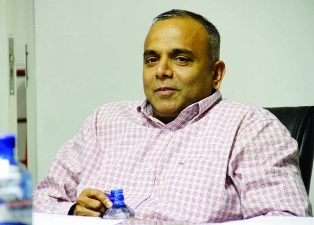
THE National Mine Worker’s Union of Zimbabwe (NMWZ) is optimistic that provisions in the new Constitution on labour reform will go a long in improving working conditions for its members.
Report by Gamma Mudarikiri.
Speaking to Southern Eye Business on the sidelines of the NMWZ congress held in Bulawayo at the weekend, general- secretary Sylvester Mushaike said they were anticipating that the passing of the new Constitution into law would go a long way in addressing a myriad of challenges besetting workers.
He said chief among the challenges was victimisation of union members by their employers, paltry pensions and wages.
“Mine workers are modern day slaves,” Mushaike said. The minimum salary for an underground miner is $227, but he is the one doing the most difficult of the jobs with all those risks.”
Mushaike said most mine workers will become destitute upon retirement as their pensions were paltry and could not sustain them regardless of some serving for many years in mining companies.
Mining pensioners are getting monthly retirement allowances as little as $40 a month. However, the National Social Security Authority has indicated that it will be increasing the allowances to $60 per a month with effect from August 1.
Mining companies in Zimbabwe, although paying paltry salaries to their low grade employees, are the best in terms of performance and profitability.
- Chamisa under fire over US$120K donation
- Mavhunga puts DeMbare into Chibuku quarterfinals
- Pension funds bet on Cabora Bassa oilfields
- Councils defy govt fire tender directive
Keep Reading
Companies like Zimplats posted profits as high as $65 million in the first quarter of this year while Mimosa last year recorded profits of $22 million.
Speaking at the same congress Zimbabwe Congress of Trade Unions first vice-president Sithokozile Siwela said victimisation of workers was rife in Zimbabwe.
“There are rampant suspensions, intimidations, transfers of employees active in trade unions, and even sometimes dismissals,” Siwela said.
Labour and Social Welfare minister Paurina Mpariwa said the congress came at a time when government was pushing the decent work agenda which is focused at encouraging decent employment opportunities, enhancing social protection and mitigating the impact of HIV and Aids at work places.
Mpariwa challenged the miners to push for their admittance into the employment council.
“I need not to emphasise to you the importance of these councils, but will urge you to go for a seat in the employment council,” she said.










